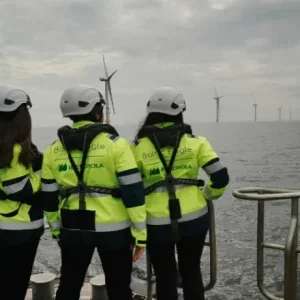The Prime Minister warmly welcomed the historic agreement to tackle climate change reached by nearly 200 world leaders over the weekend. Energy Secretary Amber Rudd said the government was ‘wholeheartedly committed’ to a deal which she described as ‘a clear signal to business to invest in the low carbon transition’.
But what kind of signal the government is willing to send to UK businesses will become clear this week, when ministers are expected to announce a decision on proposals to massively scale back a key funding scheme for small-scale renewable energy projects.
Government’s plans to cut so-called ‘feed-in tariffs’ by almost 90% from next year had already come under fire from many quarters before the Paris summit. Last month, a group of leading businesses including BT, Tesco, and Marks & Spencer, joined a string of high-profile figures featuring Al Gore, the UN’s chief environment scientist, the chair of the Climate Change Committee, and the London mayor Boris Johnson in criticising the policy.
Greenpeace is calling on the government to listen to some of Britain’s top blue-chip firms who have advocated a much more gradual phase-out of subsidies.
Solar industry representatives predict that over 20,000 jobs could be lost as a result of the proposed cuts. About 1,000 jobs have already been lost as four major solar companies have shut down their UK operations or gone bankrupt blaming changes to government policy.
Meanwhile, the Paris summit has since seen an unprecedented display of political support for solar energy. India and France unveiled a new ‘solar alliance’ involving 120 countries and aiming to mobilise $1tn of investment in the sector worldwide.
Greenpeace UK energy campaigner Barbara Stoll said:
"The energy secretary said the UK is ‘wholeheartedly committed’ to the Paris climate deal. The decision on solar support will be the first test of whether the government is willing to put their money where their mouth is.
"Solar power is not just a massive opportunity to create jobs and business growth, it’s also, together with onshore wind, one of the cheapest ways we have to cut carbon emissions. Making sharp and sudden cuts to an industry so close to becoming subsidy free makes no economic sense and will only leave consumers facing higher bills in the long run.
"With the Paris agreement nearly 200 world leaders have decided to put fossil fuels on the wrong side of history. Now it’s time for David Cameron and George Osborne to decide which side Britain will be on."






